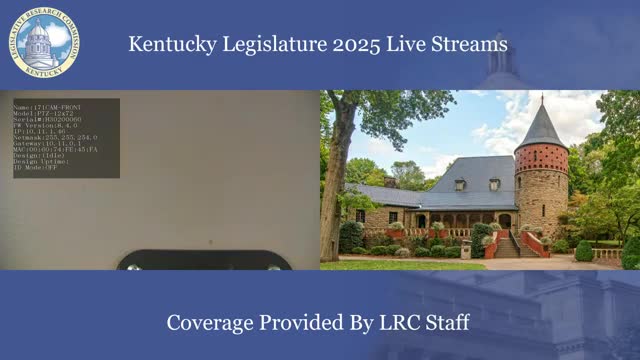Kentucky public health officials cite testing and labor costs as reason for higher fiscal estimate on private-pool rentals
Get AI-powered insights, summaries, and transcripts
Subscribe
Summary
Department for Public Health told senators that large-scale waterborne outbreak investigations can cost about $85,000 each and that private pools rented to the public could increase laboratory and investigation costs; lawmakers questioned a 50–100 incident estimate and disputed available case counts
Department for Public Health staff told the Senate Appropriations and Revenue Committee that a large-scale waterborne or foodborne disease outbreak investigation costs roughly $85,000 and that the department’s laboratory costs could rise if private swimming pools are rented to the public.
“ We have a cost estimate of about $85,000 for any type of large scale waterborne, foodborne disease outbreak investigation,” Julie Brooks, a policy specialist with the Department for Public Health, said. The department said that figure covers additional staff time beyond routine work and laboratory costs, and that the figure derives from a large outbreak investigation in February 2014.
Brooks and branch managers told the committee the department’s estimate that private-pool rental could create between 50 and 100 additional outbreak investigations is a ballpark figure tied to growing rental activity, not a documented forecast. “It is a ballpark estimate that there is the potential for an increase as private swimming pools become more popular as rented to members of the general public,” Brooks said.
Committee members pressed officials on the difference between that 50–100 range and the department’s actual case history. Brooks corrected an earlier count and said 14 investigations tied to private pools were recorded over the last five years; in 2024 the department reported about 822 overall waterborne cases, of which eight were tied to public swimming pools. Committee members pointed to the Legislative Research Commission’s (LRC) fiscal analysis, which listed a much smaller number of investigations, and asked why the executive-branch estimate differed.
Officials explained differences arise from scope and method. The department said it does not actively regulate private pools except when the private pool is “held out for rent,” in which case the pool can meet the statutory definition of a public pool and fall under regulation. “We do not currently regulate private pools. They are excluded by definition,” Erica Brightfield, environmental management branch manager, explained; she added the regulatory issue is rental activity rather than construction standards, which public pools must meet.
Laboratory capacity was a repeated concern: the department said some tests for waterborne pathogens require outside laboratories and that would increase laboratory costs beyond the core budget. Officials also acknowledged the department has baseline funding for routine outbreak work but that certain laboratory expenses and the extra staff time for major investigations would be additional costs.
What the committee recorded: no formal committee action on Senate Bill 61 occurred in the transcript. Lawmakers asked for clarification on numbers and advised improved coordination between executive offices and the legislative staff when fiscal analyses are circulated.
Ending: Committee members thanked public health staff for testifying and said they would expect clearer, itemized fiscal analyses if the executive branch submits cost estimates outside the LRC process.
